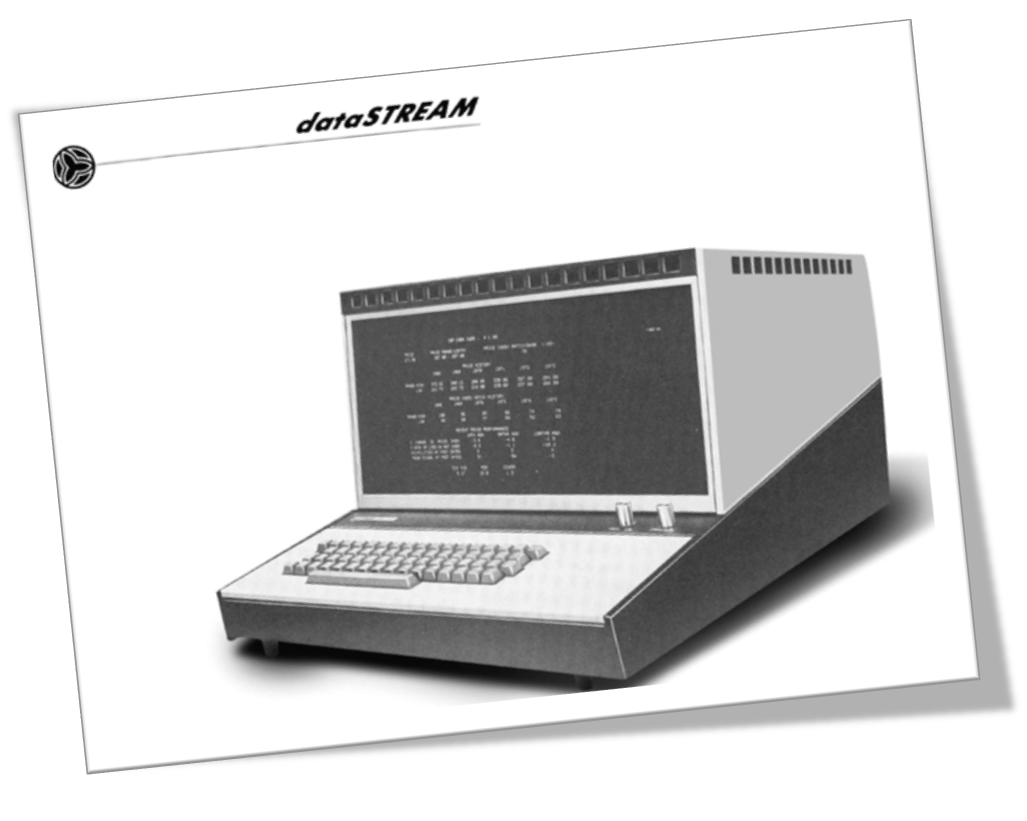Net Interest - The Data Exchange
Before I learned how to use Bloomberg, my go-to financial data provider was an application called Datastream. For an equity analyst, it had everything: historic share prices, macroeconomic time series, company earnings estimates – all of which I could download directly into Excel. Unlike Bloomberg, which established itself on trading floors, Datastream was built for research departments. Datastream doesn’t have the brand recognition of Bloomberg but it is still going. It tracks 35 million individual instruments and indicators across major asset classes, including 8.5 million active economic indicators, and features 120 years of data from 175 countries. Today, it’s used mostly by strategists and economists rather than by equity analysts. It has also had several owners along the way. In fact, since launch, eight different entities have managed the Datastream business – from a pension fund, to a brokerage firm, to a consortium led by an industrial company, to a commercial data company, to a specialist financial data company, to a publisher, to private equity, to a stock exchange. Its passage between them reflects the evolution of the broader financial data industry, an industry that’s now worth £35 billion ($44 billion) according to its latest owner, and could be worth £85 billion ($107 billion) if customers’ in-house spend becomes available as well. Last week, Datastream’s newest owner, the London Stock Exchange Group (LSEG), showcased its data and analytics business to the market. After gobbling up Datastream’s previous parent, data and analytics now makes up two thirds of group revenue and places LSEG number two in the market behind Bloomberg. But a recent deal with Microsoft convinces LSEG that it can close the gap. If you believe what management says, financial data will cease to be something you look up and increasingly be integrated directly into workflows.  To see how we got here, read on. Ahead of His TimeIn 1962, when Mike Bloomberg was still an undergraduate at Johns Hopkins University, a 33-year old Graham Blease was working as an investment manager for the Airways Corporations’ Joint Pension Scheme in the UK, a forerunner of British Airways. As an early adopter of technology, Blease was struck by the lack of tools available to support him in making investment decisions at a time when financial business in London remained heavily relationship driven. Together with his team, Blease commandeered a part of the Airways ticket booking computer and began to compile a series of indices to track prices, dividends and earnings. The most significant index they called the JPS Index, made up of 650 companies – far broader than anything else on the market (the FTSE100 wouldn’t be introduced for another 22 years). The team used the index internally and after a while began distributing it to stockbrokers for a fee. Blease saw potential in the database but realised it would need additional investment his employer was not able to provide. In 1964, he moved to broker Hoare & Co (now part of Jefferies) whose partners embraced his idea. Initially, he simply replicated his JPS Index, producing the Hoare & Co Equity Investment Service on a brand new IBM 1620 the firm bought especially for the project. Each day, a team of messengers would deliver printouts across the City of London. But Blease had grander ambitions. Through various visits to New York, he knew that US brokerages stored and manipulated financial data, and made it available online. The only problem was that a programming expert was needed to extract it. Blease’s vision was to enhance the idea with a friendly user interface. In 1967, he launched Datastream as an online interactive data retrieval system. Terminals would be installed in client offices that could interrogate a mainframe via easy access programs to display textual information about stocks and indices. To streamline the process, Blease introduced shorthand codes similar to those used in most financial data services today. By 1976 it had become clear that ownership by a single broker was becoming an impediment to growth. Meanwhile, the London Stock Exchange was beginning to get nervous. In the past, the stock exchange had been able to maintain control over the market by restricting physical access to its trading floor. Although the trading floor wouldn’t be abandoned for another ten years, technology increasingly presented a threat. In the electronic age, the equivalent to floor access was access to prices and data displayed on electronic screens. Worried that it might expand into automated trading, the London Stock Exchange looked to buy Datastream. In the event, the price was considered too high and Datastream was sold to a consortium of companies led by BOC (British Oxygen Corporation) for £2 million.¹ The following year, the London Stock Exchange launched its own price display system, initially intent on maintaining a monopoly on both trading and price dissemination. Eventually it relaxed its position on electronic display. An internal 1979 report concluded that “the strength of the Stock Exchange lay in the information it held; actual dissemination however, should be left to others.” Blease didn’t survive the change in ownership, nor did he make any money from the sale. He left to form a new company, Finsbury Data Services to provide a database for text based information such as news and commentary as distinct from the numerical data provided by Datastream – an early generation search engine. By 1983, Finsbury had around 600 clients in the UK, Europe and the US paying up to £8,500 a year for unlimited access to all its services. In 1987, it was sold to Reuters, becoming the foundation for Factiva which is now owned by Dow Jones. Over at Datastream, the new owners provided the necessary investment for the business to grow. Graphics were launched and new programs allowed users to design and apply expressions to any combination of historical datasets. In 1983, the consortium listed a partial stake on the stock exchange, valuing the company at £24 million, equivalent to 22.8x earnings, and a year later they sold out completely when commercial data company Dun & Bradstreet offered to buy Datastream for $101 million. Dun & Bradstreet didn’t stick around for long. A strategic review in 1990 prompted a rethink and Datastream was put up for sale. After a two year process, Virginia-based Primark Corp, a diversified services company with ambitions to turn itself into a pure information services play, stepped up, buying the company for $191 million. By then, Datastream had some 640 employees and generated $95 million of revenues with profit margins of 18%. It was under Primark’s ownership that I was first introduced to Datastream. Through its Windows interface, the system offered an easy integration with Excel, an invaluable feature for a financial analyst. But in those days, the financial data market was highly fragmented and it was difficult to determine which services to use. Primark played a role in the industry’s consolidation. In 1995, it acquired I/B/E/S, a database of analyst earnings estimates, and Worldscope, a database of detailed financial statement data. In 1996, it acquired ICV, a real time equity and news service for the UK market. In 1999, it acquired Extel, a supplier of fundamental company information previously owned by the Financial Times. “Consolidation is happening largely because customers want it,” the CEO of Primark declared. “They want to deal with fewer vendors, with whom they can have global deals. That is the message we have been getting.” He said it in 1996, but it’s been the rationale for consolidation in the sector ever since... Subscribe to Net Interest to read the rest.Become a paying subscriber of Net Interest to get access to this post and other subscriber-only content. A subscription gets you:
|
Older messages
Slicing and Dicing
Friday, November 17, 2023
How Apollo is Creating a Deconstructed Bank
The Capital Cycle Hits Payments
Friday, November 10, 2023
Adyen's American Adventure
Private Lending
Friday, November 3, 2023
The Growth of an Asset Class
A Reckoning in Payments
Friday, October 27, 2023
First Adyen and now Worldline: Is this the end of Fintech?
Risk of Ruin
Tuesday, October 24, 2023
Plus: JPMorgan, BlackRock, Wells Fargo
You Might Also Like
Longreads + Open Thread
Saturday, March 8, 2025
Personal Essays, Lies, Popes, GPT-4.5, Banks, Buy-and-Hold, Advanced Portfolio Management, Trade, Karp Longreads + Open Thread By Byrne Hobart • 8 Mar 2025 View in browser View in browser Longreads
💸 A $24 billion grocery haul
Friday, March 7, 2025
Walgreens landed in a shopping basket, crypto investors felt pranked by the president, and a burger made of skin | Finimize Hi Reader, here's what you need to know for March 8th in 3:11 minutes.
The financial toll of a divorce can be devastating
Friday, March 7, 2025
Here are some options to get back on track ͏ ͏ ͏ ͏ ͏ ͏ ͏ ͏ ͏ ͏ ͏ ͏ ͏ ͏ ͏ ͏ ͏ ͏ ͏ ͏ ͏ ͏ ͏ ͏ ͏ ͏ ͏ ͏ ͏ ͏ ͏ ͏ ͏ ͏ ͏ ͏ ͏ ͏ ͏ ͏ ͏ ͏ ͏ ͏ ͏ ͏ ͏ ͏ ͏ ͏ ͏ ͏ ͏
Too Big To Fail?
Friday, March 7, 2025
Revisiting Millennium and Multi-Manager Hedge Funds ͏ ͏ ͏ ͏ ͏ ͏ ͏ ͏ ͏ ͏ ͏ ͏ ͏ ͏ ͏ ͏ ͏ ͏ ͏ ͏ ͏ ͏ ͏ ͏ ͏ ͏ ͏ ͏ ͏ ͏ ͏ ͏ ͏ ͏ ͏ ͏ ͏ ͏ ͏ ͏ ͏ ͏ ͏ ͏ ͏ ͏ ͏ ͏ ͏ ͏ ͏ ͏ ͏ ͏ ͏ ͏ ͏ ͏ ͏ ͏ ͏ ͏ ͏ ͏ ͏ ͏ ͏ ͏ ͏ ͏ ͏ ͏ ͏ ͏ ͏
The tell-tale signs the crash of a lifetime is near
Friday, March 7, 2025
Message from Harry Dent ͏ ͏ ͏ ͏ ͏ ͏ ͏ ͏ ͏ ͏ ͏ ͏ ͏ ͏ ͏ ͏ ͏ ͏ ͏ ͏ ͏ ͏ ͏ ͏ ͏ ͏ ͏ ͏ ͏ ͏ ͏ ͏ ͏ ͏ ͏ ͏ ͏ ͏ ͏ ͏ ͏ ͏ ͏ ͏ ͏ ͏ ͏ ͏ ͏ ͏ ͏ ͏ ͏ ͏ ͏ ͏ ͏ ͏ ͏ ͏ ͏ ͏ ͏ ͏ ͏ ͏ ͏ ͏ ͏ ͏ ͏ ͏ ͏ ͏ ͏ ͏ ͏ ͏ ͏ ͏ ͏ ͏ ͏ ͏ ͏ ͏ ͏ ͏ ͏
👀 DeepSeek 2.0
Thursday, March 6, 2025
Alibaba's AI competitor, Europe's rate cut, and loads of instant noodles | Finimize TOGETHER WITH Hi Reader, here's what you need to know for March 7th in 3:07 minutes. Investors rewarded
Crypto Politics: Strategy or Play? - Issue #515
Thursday, March 6, 2025
FTW Crypto: Trump's crypto plan fuels market surges—is it real policy or just strategy? Decentralization may be the only way forward. ͏ ͏ ͏ ͏ ͏ ͏ ͏ ͏ ͏ ͏ ͏ ͏ ͏ ͏ ͏ ͏
What can 40 years of data on vacancy advertising costs tell us about labour market equilibrium?
Thursday, March 6, 2025
Michal Stelmach, James Kensett and Philip Schnattinger Economists frequently use the vacancies to unemployment (V/U) ratio to measure labour market tightness. Analysis of the labour market during the
🇺🇸 Make America rich again
Wednesday, March 5, 2025
The US president stood by tariffs, China revealed ambitious plans, and the startup fighting fast fashion's ugly side | Finimize TOGETHER WITH Hi Reader, here's what you need to know for March
Are you prepared for Social Security’s uncertain future?
Wednesday, March 5, 2025
Investing in gold with AHG could help stabilize your retirement ͏ ͏ ͏ ͏ ͏ ͏ ͏ ͏ ͏ ͏ ͏ ͏ ͏ ͏ ͏ ͏ ͏ ͏ ͏ ͏ ͏ ͏ ͏ ͏ ͏ ͏ ͏ ͏ ͏ ͏ ͏ ͏ ͏ ͏ ͏ ͏ ͏ ͏ ͏ ͏ ͏ ͏ ͏ ͏ ͏ ͏
